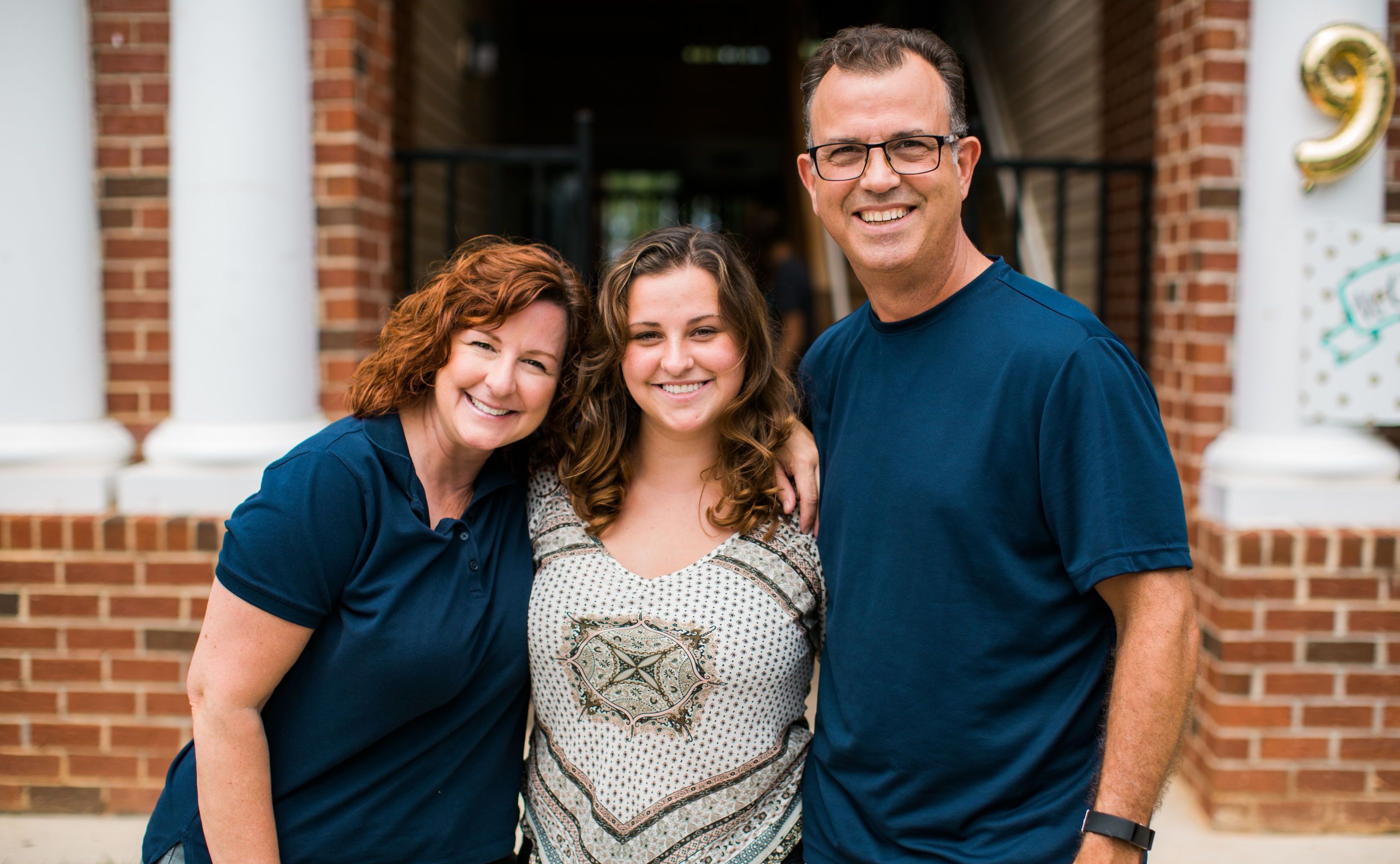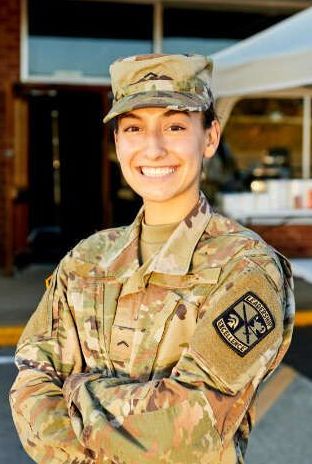Master of Science Athletic Training
Prevent, Evaluate, and Rehabilitate Injuries with Liberty’s Master’s in Athletic Training
Are you passionate about sports? Do you want to make a positive impact on patients’ lives as a healthcare professional? Liberty University’s Master of Science in Athletic Training degree will equip you to turn these desires into a reality. Develop the skills you need to become a certified athletic trainer by studying how to serve others through the prevention, examination, and rehabilitation of injuries and medical conditions.

We understand that you care about health. Through our degree in athletic training, you can get the classroom and practical experience you need to make a difference in the lives of your patients. Learn how to improve others’ lives and make a positive impact on the field of athletic training. You will learn in the classroom, then put that training to use in a clinical environment under the mentorship of our experienced faculty.
Pursue Your Degree with Confidence
- Our Master of Science in Athletic Training degree is accredited by CAATE, the Commission on Accreditation of Athletic Training Education.
- The athletic training profession is recognized as an Allied Health Profession by the American Medical Association, Health Resources Services Administration, and the Department of Health and Human Services.
- Get the opportunity to apply your knowledge and skills while working directly with patients in one of over 20 clinical education sites. Here, you will be supervised and mentored by a licensed athletic trainer or other licensed healthcare professionals with a student to preceptor ratio of 2:1. In some settings, you may even receive one-on-one mentorship.
- Get hands-on experience in our state-of-the-art Athletic Training Lab and Standardized Patient Center.
What Will You Study?
- Advanced level of emergency care and risk management
- How to evaluate injuries related to upper and lower extremity orthopedics patient assessment
- The application, instruction, progression, and probable outcomes of the use of therapeutic exercises and modalities
- The interactions of drugs and biological systems as a basis for rational disease therapy as it relates to the physically active patient
Career Opportunities for Athletic Training Graduates
Athletic trainers treat a range of patients and can work in a variety of settings. Here are some of the locations where athletic trainers may find themselves:
- Clinics and hospitals
- Colleges and universities
- Professional sports
- Secondary schools
Some emerging settings where you may find work as an athletic trainer include performing arts, public safety, the military, and occupational health.
Clinicals and Resources Available to Students in Our Master’s in Athletic Training Degree Program
- Get the opportunity to apply your knowledge and skills while working directly with patients in one of over 20 clinical education sites. Here, you will be supervised and mentored by a licensed athletic trainer or other licensed healthcare professionals with a student to preceptor ratio of 2:1. In some settings, you may even receive one-on-one mentorship.
- The athletic training program is accredited by the CAATE, the Commission on Accreditation of Athletic Training Education.
- The athletic training profession is recognized as an Allied Health Profession by the American Medical Association, Health Resources Services Administration, and the Department of Health and Human Services.
- Practice your clinical skills and have them recorded for evaluation in our Standardized Patient Center. Get beneficial feedback from faculty and your peers before you take your practical exams.
- You can finish your athletic trainer’s degree in just 2 years.
Admission Requirements for Our Master’s in Athletic Training
Every application is reviewed on a case-by-case basis, and all applicants must submit the following documents and meet the minimum requirements for admission:
- Admission application
- Self-certification form (for students who are in the final term of their bachelor’s degree)
- Current Liberty undergraduate students seeking preliminary acceptance into a graduate program must complete a degree completion application through their myLU account
- A regionally or nationally accredited bachelor’s degree with at least a 3.0 GPA for admission in good standing
- Statement of purpose (1,000 words or less)
- Department approval
Additional Requirements and Prerequisites
- A BLS, CRP, and AED Certification
- Anatomy and Physiology I and II and labs
- Chemistry I and lab
- Exercise Physiology
- General Biology
- General Psychology and Statistics
- Medical Terminology
- Nutrition
*All prerequisites will need to be completed either prior to acceptance or within the 1st semester of the program
Please note: Due to the requirements in this program, you may only start the M.S. in Athletic Training during the summer semester.
Master of Science Athletic Training
Pursue Your Degree with Confidence
- Our Master of Science in Athletic Training degree is accredited by CAATE, the Commission on Accreditation of Athletic Training Education.
- The athletic training profession is recognized as an Allied Health Profession by the American Medical Association, Health Resources Services Administration, and the Department of Health and Human Services.
- Get the opportunity to apply your knowledge and skills while working directly with patients in one of over 20 clinical education sites. Here, you will be supervised and mentored by a licensed athletic trainer or other licensed healthcare professionals with a student to preceptor ratio of 2:1. In some settings, you may even receive one-on-one mentorship.
- Get hands-on experience in our state-of-the-art Athletic Training Lab and Standardized Patient Center.

What Will You Learn?
- Advanced level of emergency care and risk management
- How to evaluate injuries related to upper and lower extremity orthopedics patient assessment
- The application, instruction, progression, and probable outcomes of the use of therapeutic exercises and modalities
- The interactions of drugs and biological systems as a basis for rational disease therapy as it relates to the physically active patient
Career Opportunities for Athletic Training Graduates
Athletic trainers treat a range of patients and can work in a variety of settings. Here are some of the locations where athletic trainers may find themselves:
- Clinics and hospitals
- Colleges and universities
- Professional sports
- Secondary schools
Some emerging settings where you may find work as an athletic trainer include performing arts, public safety, the military, and occupational health.
Clinicals and Resources Available to Students in Our Master’s in Athletic Training Degree Program
- Get the opportunity to apply your knowledge and skills while working directly with patients in one of over 20 clinical education sites. Here, you will be supervised and mentored by a licensed athletic trainer or other licensed healthcare professionals with a student to preceptor ratio of 2:1. In some settings, you may even receive one-on-one mentorship.
- The athletic training program is accredited by the CAATE, the Commission on Accreditation of Athletic Training Education.
- The athletic training profession is recognized as an Allied Health Profession by the American Medical Association, Health Resources Services Administration, and the Department of Health and Human Services.
- Practice your clinical skills and have them recorded for evaluation in our Standardized Patient Center. Get beneficial feedback from faculty and your peers before you take your practical exams.
- You can finish your athletic trainer’s degree in just 2 years.
Admission Requirements for Our Master’s in Athletic Training
Every application is reviewed on a case-by-case basis, and all applicants must submit the following documents and meet the minimum requirements for admission:
- Admission application
- Self-certification form (for students who are in the final term of their bachelor’s degree)
- Current Liberty undergraduate students seeking preliminary acceptance into a graduate program must complete a degree completion application through their ASIST account
- A regionally or nationally accredited bachelor’s degree with at least a 3.0 GPA for admission in good standing
- Statement of purpose (1,000 words or less)
- Department approval
Additional Requirements and Prerequisites
- A BLS, CRP, and AED Certification
- Anatomy and Physiology I and II and labs
- Chemistry I and lab
- Exercise Physiology
- General Biology
- General Psychology and Statistics
- Medical Terminology
- Nutrition
Please note: Due to the requirements in this program, you may only start the M.S. in Athletic Training during the summer semester.
Tuition rates may change annually. For the most current information, please visit our LU Tuition Cost page.
Credit Hours

Available On Campus
Class Type
Residential
Transfer Credits
Transfer in up to 50% of the degree total
Next Start Date
May 18, 2026
Accreditation
CAATE





